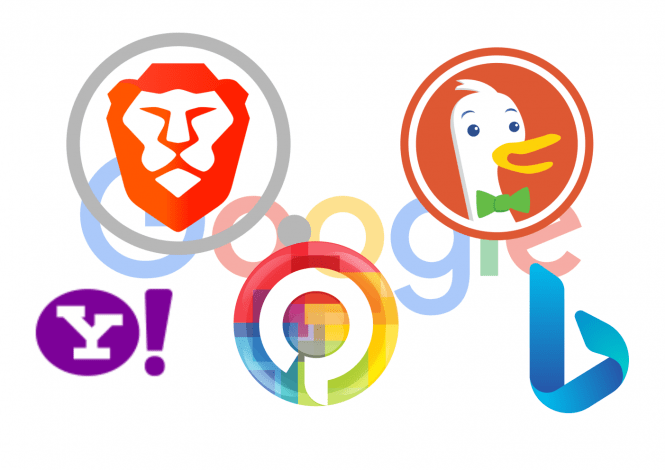 Now Google is a monopolist. What are the alternatives?
Now Google is a monopolist. What are the alternatives?
On Monday, August 5, 2024, Amit P. Mehta, a judge of the U.S. District Court for the District of Columbia, officially recognized Google as a monopolist engaging in anti-competitive practices. So far, there’s no fallout in sight that can affect us, the regular users of the Web, but something is definitely brewing, and we may well be in for some tectonic-shift type of show.
Eventually, Google may be forced to withdraw from being a default search engine in mobile and desktop domains. Of course, you’ll still be able to opt in to continue using it voluntarily, but it’s always good to know the options, right? Let’s see who Google actually competes with, and consider their pros and cons. We didn’t seek to make an ultimate list – there are about 30 general-purpose SEs in the world, plus 1500+ specialized ones – so we give you only the top 5 search engines that can really replace Google in your daily grind.
A word of warning: you may be greatly (and not necessarily pleasantly) surprised when comparing what Google returns to the results delivered by alternative search engines.
0. AI-powered search engines
You may have seen lists of AI-powered search engines online, but the truth is there’s only a handful of real options available so far. The reason is quite simple: LLMs (large language models, a.k.a. AIs) tend to make up stuff, so whenever you ask it a question, the answer may look trustworthy but totally clash with reality. Therefore, if you’re looking for a real-deal AI-powered search engine, here’s the list of what actually fits the bill, as of this writing:
– Perplexity.ai (has a Chrome extension, iOS and Android apps; a truly viable AI alternative)
– Yandex Neuro (limited to Russian locale so far; available in Yandex Browser)
– Komo.ai (has a dedicated Search function, but the real AI search experience is under the Ask tab)
– SearchGPT (still under covers, will be launched soon; see this post for details)
1. DuckDuckGo
Launched on September 25, of 2008, DuckDuckGo distinguishes itself from mainstream search engines by prioritizing user privacy and not tracking search history or personal data. They are also supporting the DuckDuckGo browser, which you can get here.
Pros and Cons of DuckDuckGo
Pros
- Privacy. DuckDuckGo does not collect or store personal information, everything is anonymous. Plus, your search history does not affect what the engine fetches in response to your query.
- Extra features. DuckDuckGo offers bangs, which are shortcuts allowing searching on other sites directly, and an array of points for quick access to various tools and information.
- Security. DuckDuckGo natively protects users against trackers and malware.
Cons
- Limited capabilities. Compared to competitors like Google, DuckDuckGo offers fewer additional services and features.
- Dependency on other SEs. DuckDuckGo sources its results from other search engines, primarily Bing.
- No personalization. A pro for some, a con for others. DuckDuckGo does not personalize search results pages nor suggests queries based on previous experience.
2. Brave
Brave is a web browser, in the first place; the search engine was added to the package down the road to make it complete. You can get the Brave browser here.
Pros and cons of Brave Search
Pros
- Privacy. Pretty much the same as DuckDuckGo. In fact, search engines alternative to Google make it a selling point, which works well in comparison to the latter.
- Ad-free browsing. Users can enjoy an ad-free search experience, as Brave Search does not rely on advertising revenue in the same way that other search engines do.
- Customization. By default, one size fits all, but if you care, there are various settings and dials that allow customizing your experience with the Brave Search engine.
Cons
- Limited index. Brave Search is a relatively new search engine, which means it has indexed fewer sources of information than more established competitors like Google.
- More simple. As of this writing, Brave Search does not offer rich snippets or extensive filtering options. For users, though, it’s a plus.
3. Microsoft Bing
Microsoft Bing is a web search engine developed by Microsoft, launched on June 3, 2009. It was designed with search results organization and visual order/appeal in mind.
Pros and cons of Microsoft Bing
Pros
- Visually complete search experience. Bing saturates search results pages with visual content, making them more user-friendly.
- Hyperlocal search capabilities. Bing can fetch a lot of location-specific information, from maps through shopping aides to business listings.
Cons
- Search quality. Bing is a mainstream search engine, so it’s scrutinized for quality of responses to search queries, and compared to Google. So far, the latter scores higher.
- Tracking. Forget about privacy; Bing does collect and store your search history, etc.
- Ads. Bing's search result pages can sometimes be literally cluttered with ads.
4. Qwant
Qwant hails from France. It was launched in 2013 to provide users there with an alternative to traditional search engines. Same as the aforementioned DuckDuckGo and Brave, Qwant puts user privacy first.
Pros and cons of Qwant
Pros
- Privacy. No tracking, no data collection, history recording, etc.
- Neutral search results. Qwant seeks to serve unbiased search results.
- Additional services. Qwant has decent Qwant Maps and Qwant Music, but, what’s quite unique, it offers Qwant Junior (also available as an app for iOS and Android), a safe search engine for children aged 6 through 12 years.
Cons
- Limited index. Same as Brave, Qwant knows a bit less about the web than Google or other major search engines.
- Unhelpful results. Due to the above and the no-tracking-privacy-matters stance, Qwant can deliver a frustrating experience in terms of the contents of the search results page.
5. Yahoo
Yahoo, originally launched in 1995 by Jerry Yang and David Filo, two Stanford University students, is a phoenix in the domain of search engines. It reigned supreme, then burned down, only to be reborn. Today, in its latest incarnation, it is a viable alternative to Google.
Pros and cons of Yahoo Search
Pros
- Comprehensiveness. Yahoo can support search results with trending news, weather forecasts, even horoscopes, providing an all-in-one experience.
- Priorities. Yahoo prioritizes organic search results over ads.
- Shopping capabilities. If you like browsing for cool stuff, Yahoo can tell you a lot about this or that product.
Cons
- Powered by Bing. With everything that entails. May be considered a plus by some.
- Data submission. Yahoo still shares user data with third parties for advertising purposes.
6. National search engines
Several countries of the world have their own national search engines. They are either a total replacement for Google within a given territory, like Chinese Baidu (Google Search in all its forms and incarnations was banned in China on March 30, 2010), or race with it successfully, like Russian Yandex. All in all, just for your information, here’s the list of national search engines:
– Yandex (Russia)
– Baidu (China)
– Youdao (China)
– Kakao (South Korea)
– Naver (South Korea)
– Goo (Japan)
– Najdi.si (Slovenia)
– Parsijoo (Iran)
– Search.ch (Switzerland)
– Seznam.cz (Czech Republic)
As you understand, the primary purpose of the national search engines is to serve the audience in the language of the respective nation, but most of them can also work with queries in English. As for the quality of search results, it greatly depends on what you’re looking for.
So, there you have them, the alternatives to Google the mighty. Bookmark this page (does anybody still do that?) for future reference, and share it with your friends and family. Who knows what the future holds? We may have to consider switching from the main search engine of the Web sooner than expected.








